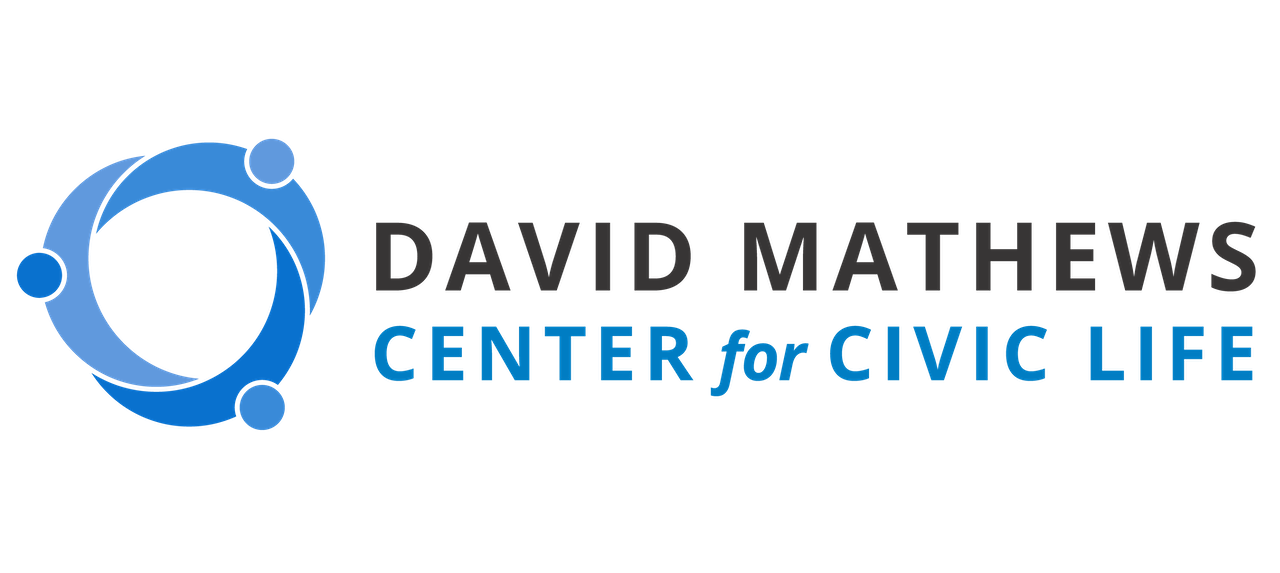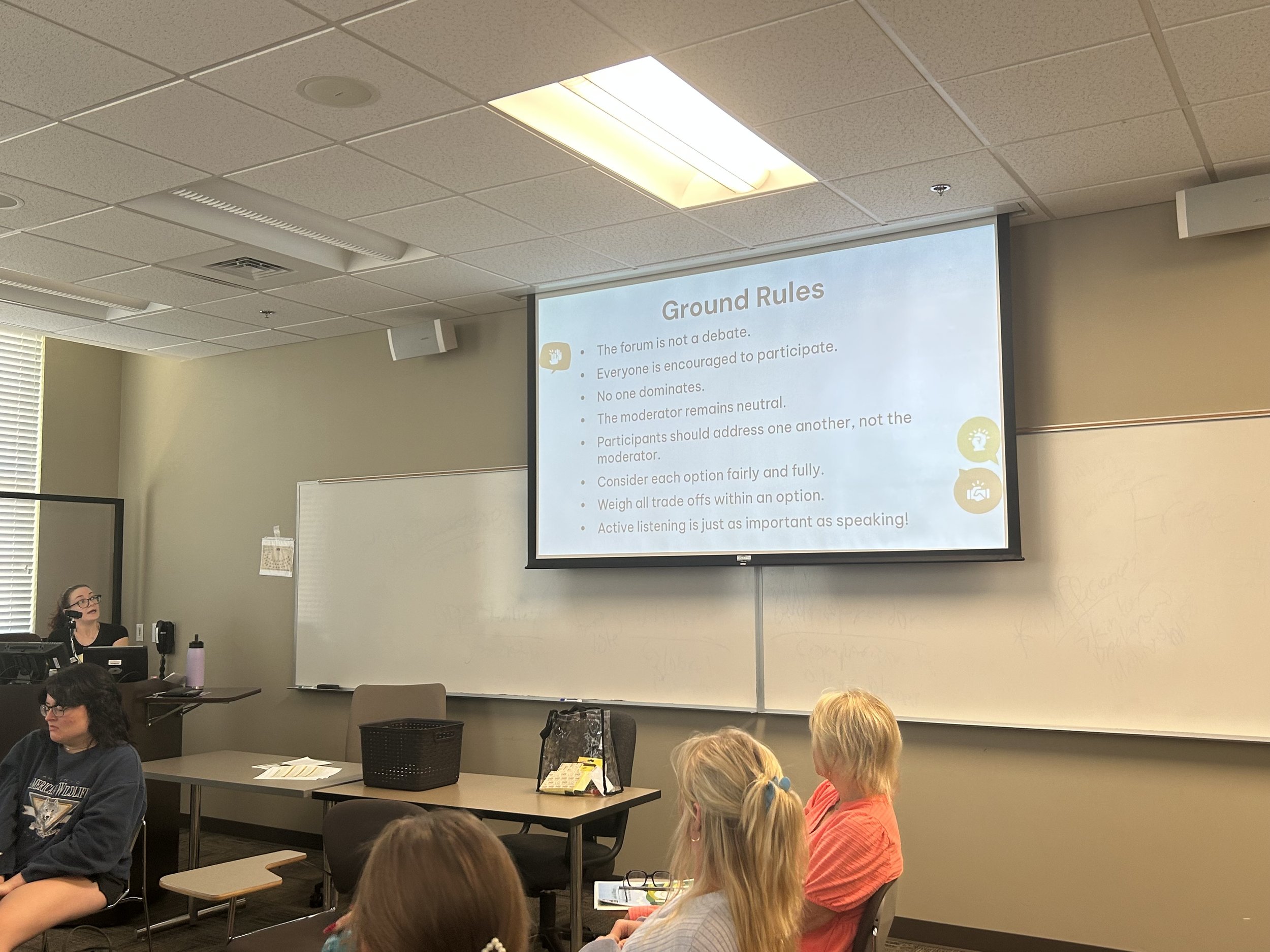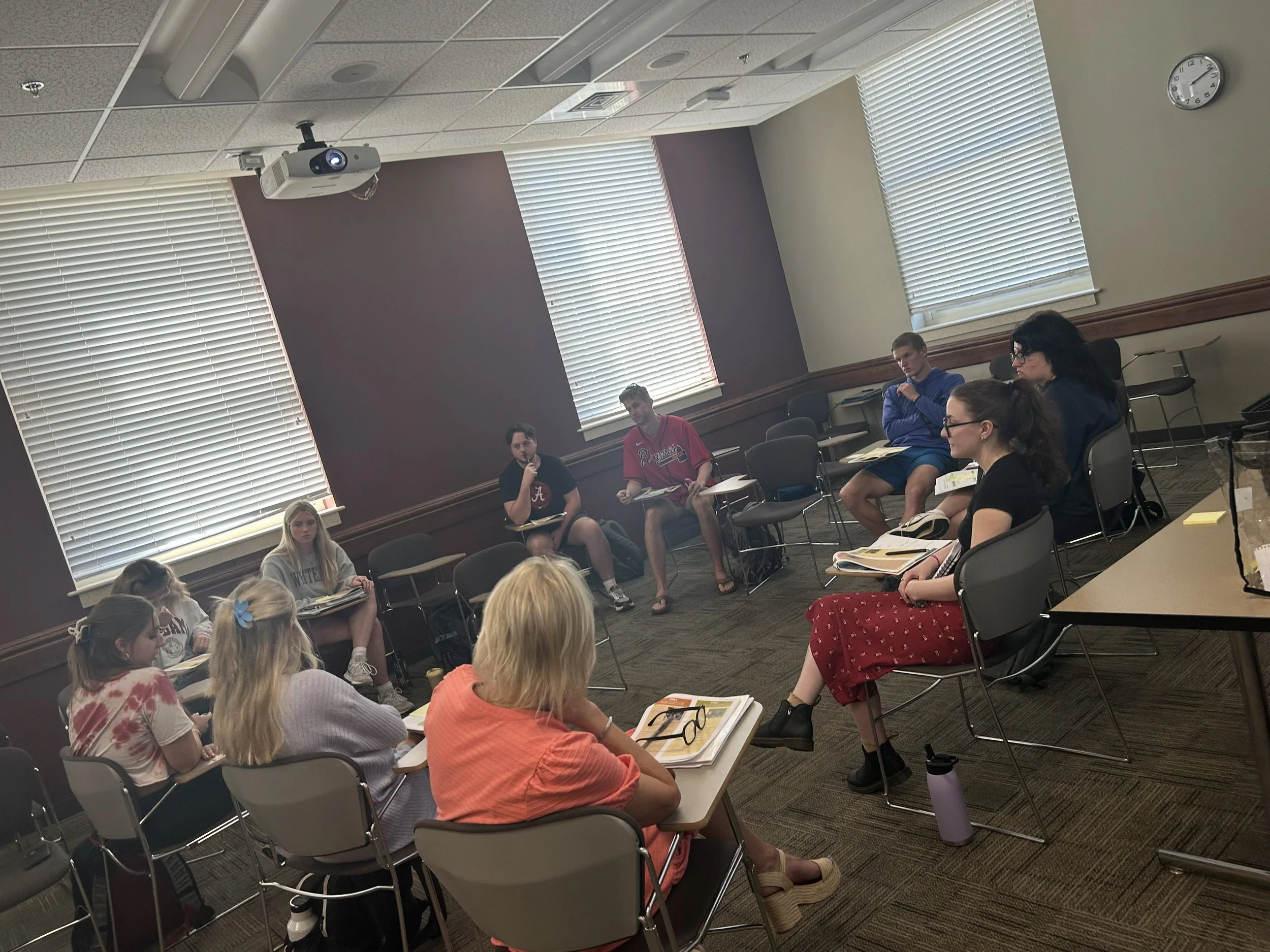Social Problems, Social Change: Creating Conversations at UA
During the week of September 18th, the Mathews Center joined Dr. Natalie Adams and her class, Social Problems/Social Change, at the University of Alabama - New College. Students engaged in a conversation guided by the NIF Land of Plenty issue guide, followed by a moderator and deliberative skills workshop.
Changing topics each semester, students this fall are studying how food insecurity impacts their community, as well as ways to address this need. In addition to traditional in-classroom coursework, students apply this instruction to practical situations through service learning. Partnering with a local church, students spend at least twelve hours working at the food pantry that is housed there. Often, products are distributed pre-selected and in boxes or bags; however, this pantry is employing the client choice model, where people can choose for themselves.
On the first day of class, students engaged in a deliberative conversation, discussing the most effective ways to provide accessible healthy food options and the trade-offs that may come with those methods. While simply having these healthier options available in stores is a considerable solution, students explained that the price of goods may still be unaffordable for those in the area. Another option, creating educational programs and services to encourage people to eat healthier and view food from a holistic perspective, seemed to be beneficial in some aspects, such as creating awareness, but students agreed that not everyone would be receptive to this kind of information and it would require putting a lot of trust in people to then make the right decisions. Although none of the solutions seemed to be the best, all of the students agreed that attention from lawmakers and a political shift in policy and procedures regarding food insecurity was needed to create the greatest and longest-lasting impact.
To connect this lively discussion to their experience working in the local food pantry, students then participated in a moderator training and deliberative skills workshop, where they received tips and tricks in having thoughtful and open conversations with those in the community, while still invoking critical thinking and consideration. Putting these newly-learned skills to the test, students broke out into groups with each student taking a turn as moderator through a series of questions.
The Mathews Center had a wonderful time engaging with the students at the University of Alabama, and we cannot wait to join Dr. Adams for her class again next year!



